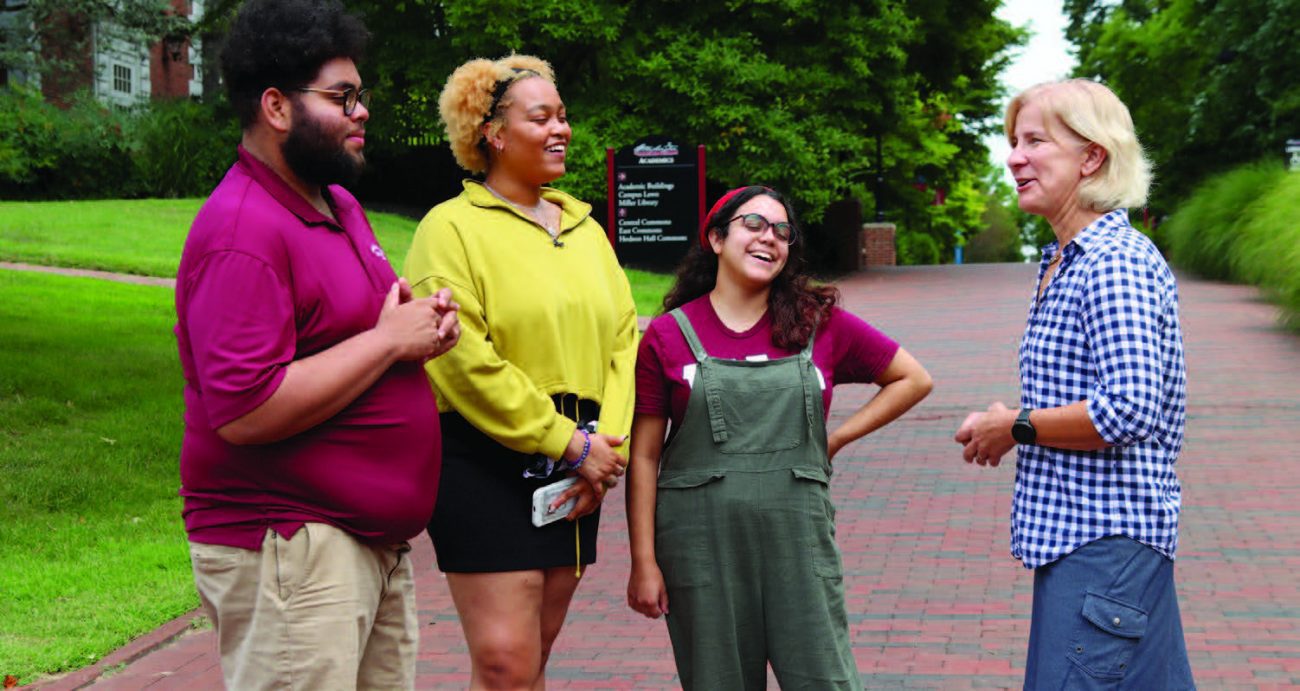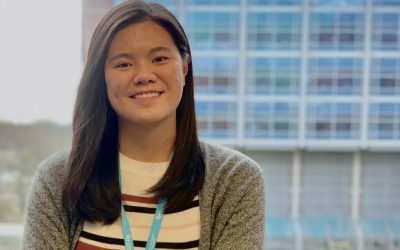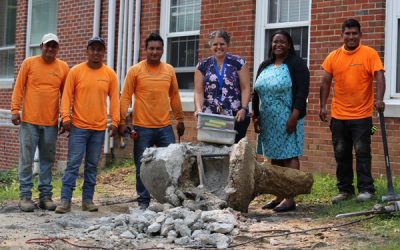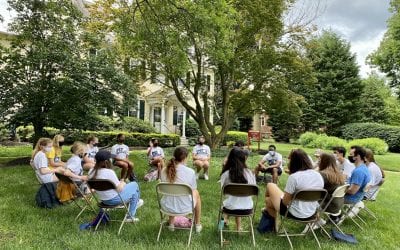Alumni in Medicine: James A.S. “Huck” Muldowney III, M.D. ’90
 • Director of Echocardiology and Anticoagulation, Cardiologist, Nashville Veterans Affairs Hospital
• Director of Echocardiology and Anticoagulation, Cardiologist, Nashville Veterans Affairs Hospital
• Assistant Professor of Medicine, Vanderbilt Heart and Vascular Institute
• M.D. Vanderbilt University
• A.B. in Chemistry, Princeton University
Describe your responsibilities and day-to-day work.
It’s easier to describe my week than my day. I read echocardiograms (ultrasounds of the heart) and perform transesophageal echos (taking pictures of the heart from patient’s esophagus) two days a week. I have four half days of clinic (seeing patients). I see patients with diseases of the autonomic nervous system. These patients fall into four categories: patients whose heart rates shoot up with standing (Postural Orthostatic Tachycardia Syndrome), whose blood pressure drops with standing (Neurogenic Orthostatic Hypotension), patients who have had head and neck cancer or other trauma to the blood vessels of their neck whose blood pressure shoots up and down randomly (baroreflex failure), and fainting (vasovagal syncope).
The balance of my time is spent supervising cardiology fellows and nurse practitioners in their clinics and committee work on the Vanderbilt University Medical Center Institutional Review Board that approves research projects and chairing the anticoagulation committee at the VA.
What is the most rewarding part of your work?
There are a number of rewarding aspects to my job. While teaching the next generation of physicians is definitely a highlight, and procedures require a technical skill, the most rewarding aspect of my job is knowing I am helping my patients. Because I specialize in a group of rare diseases, many of my patients have been seen by a number of doctors who could not find a disease that explains their symptoms. Eventually, a doctor suspects it is one of the diseases that I treat and refers the patient to me. They get a lot of credit for suspecting what was wrong and getting them to the right place. Patients who are told ‘I don’t know’ from many of the doctors prior to seeing me are relieved to receive a diagnosis and a plan, and are very appreciative when their symptoms improve from treatment. Being able to have an impact on their health is what I find most rewarding.
How did your passion for medicine/health care begin and were there any specific experiences that had an impact on you?
Honestly, my passion for medicine and health care began at Moorestown Friends School. My father, who had heart disease my entire life, was hospitalized and diagnosed with diabetes when I was in second grade. This coincided with the beginning of our ‘health and body’ unit in class. Ms. Winchell, my teacher, thought it would be a good idea for me to do a report on diabetes for the class, if only to reassure me that my dad was going to be OK. I borrowed my neighbor’s Merck Manual to learn about diabetes and couldn’t put it down. Not only did I learn about diabetes, but a number of other conditions. Furthermore, a classmate’s father who was an anesthesiologist came to our class to discuss his job, and I peppered him with questions about what I had read. That unit in second grade was pivotal for me, as it was when I decided that I wanted to be a physician.
How has your Moorestown Friends education served you in your career and life?
Above and beyond the tremendous education I received at MFS, I think that the emphasis on serving others, taking the road less traveled, and the Quaker teaching to find the light of God in others have shaped my career quite a bit.
Alumni News
30 Under 30: Erin Chen ’16
The Spring 2021 Among Friends Magazine featured 30 alumni from the Classes of 2008 to 2017, who are a representative sample of the nearly 900 graduates of the school during those years. Their ages range from 30 and just over to as young as 22. As the featured profiles...
1993 MFS Time Capsule Opened
“Today is Saturday, May 29, 1993. A gathering of Lower School faculty is preparing to create a concrete egg-shaped sculpture under the careful tutelage of Emma Richter, former art teacher in the Lower School and currently teacher’s aide in the Prekindergarten program,...
Alumni Panel Guides New Graduates
The Development Office, in collaboration with the College Counseling Department and Dean of Students Will Miller, was pleased to host the Class of 2021 for a College Alumni/Senior Class Meet & Greet on June 10. Seniors were welcomed to the MFS Alumni Association,...




